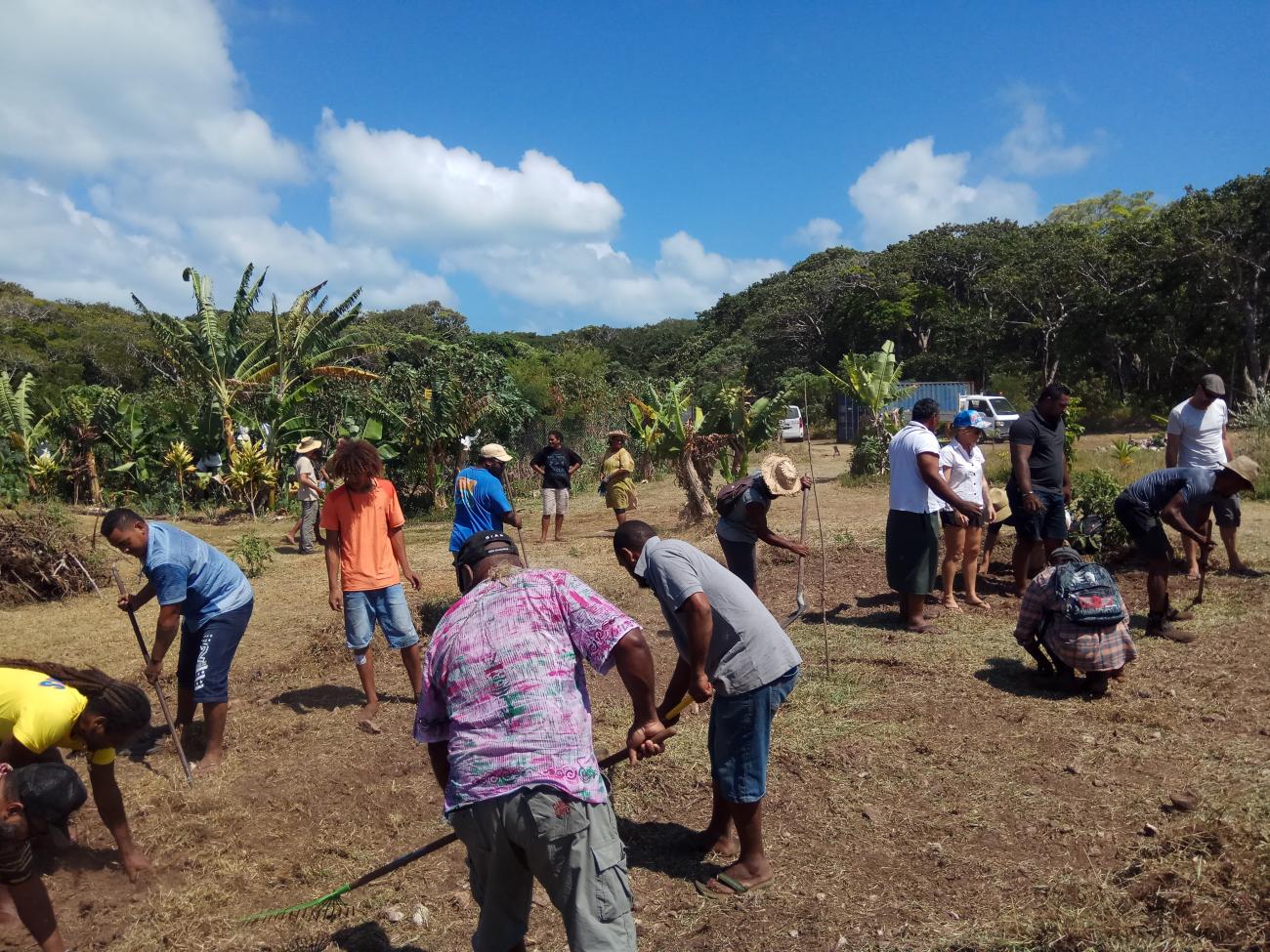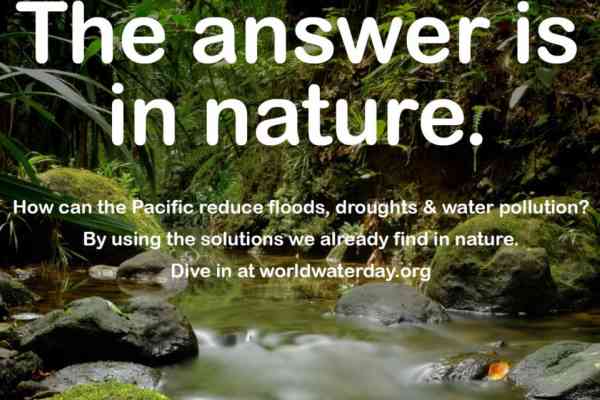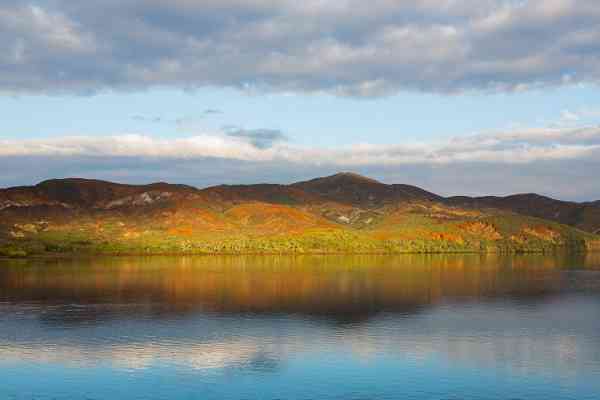On the occasion of World Environment Day 2022, whose theme is “Only One Earth”, the Pacific Community (SPC) reaffirms its commitment to leveraging science, technical expertise and partnerships to enhance the implementation of Nature-based Solutions (NbS) for sustainable development. Now more than ever, it is time to put nature at the heart development and NbS can help to create a new relationship with the environment in the Pacific region and beyond.
With rising temperatures and the increase in extreme weather events, the United Nations estimates that 75% of the land-based environment and 66% of the marine environment have been significantly altered by human activity. This situation has impacted 33% of reef-forming corals in the Pacific region and over 40% of amphibian species, which are currently under threat.
On World Environment Day, the Pacific Community (SPC) reaffirms its commitment to support awareness and action for protecting the environment. By implementing programmes that integrate Nature-based Solutions (NbS), SPC promotes the transition to a low-carbon world while tackling climate change issues and ensuring sustainable development perspectives for its Member States and Territories.
NbS are solutions inspired by nature to reduce the risks of natural hazards and those driven by unsustainable human activity while also providing environmental, social, and economic benefits. On a global scale, they can deliver emission reductions and removals of at least 5 gigatons of CO2 per year by 2030, and at least 10 gigatons by 2050 on a conservative basis (IUCN).
“To date, only 16% of forests in Oceania are in protected areas. By working with nature, by protecting, managing, and restoring natural ecosystems, we can strengthen the role of nature in addressing the challenges of climate adaptation and mitigation.” explains Cameron Diver, Deputy Director-General of the Pacific Community.
To face this challenge, SPC is working on multiple fronts. One illustration is SPC’s work on sustainable forestry in Fiji which helps conserve, restore, and enhance nature-based carbon stocks. Through the Ridge to Reef (R2R) project, SPC implemented a series of activities, including reforestation, land use planning, community natural resource management training and legislative review of forestry and related policies and laws. . Ridge to Reef was implemented on Fiji’s two largest islands – Viti Levu and Vanua Levu – in the water catchment community areas of Labasa, Tunuloa, Ba and Waidina.
Since 2018, the PROTEGE project also has a strong potential to safeguard biodiversity via protecting existing habitats. In New Caledonia, SPC supports the country’s agroecological transition towards climate-adapted agriculture. Several agroforestry plots have been established in the commune of Houaïlou to restore and reforest natural areas. For this project, aimed at initiating a restoration operation upstream of the Bâ catchments on Mindaï creek, 12,000 seedlings will be planted on 2 plots of 10 and 4 ha, respectively.
While nature-based solutions are a key tool for preserving biodiversity, enhancing client resilience and contributing to national mitigation and adaptation strategies, their deployment is constrained by a lack of funding at the global and regional levels. Over the past twenty years, less than 15 percent of the global funds dedicated to climate change mitigation and adaptation were spent on NbS.
“Investing in a nature-positive recovery will pay back over the long term. In the region, few initiatives are being implemented to enhance access to green finance. We must leverage international meetings to advocate for and achieve facilitated access for Pacific Island countries to climate finance and funding for land and ocean-related Nature-based Solutions.” argues Cameron Diver.
To enhance access to NbS funds, the Kiwa Initiative was launched in March 2020. This multi-donor program is designed to make Pacific Island ecosystems, economies, and communities more resilient to climate change through two funding windows for national and regional grants. In 2021, the French Development Agency signed a financing agreement with SPC to set up the Pacific Organic Learning Farm Network, the first regional project supported by the Kiwa Initiative, which aims to address the challenges of climate change adaptation by promoting organic farming. The network will be set up in Fiji, Nauru, the Solomon Islands and Tonga. It will also help foster regional integration with French Pacific territories by exchanging good practices in Wallis and Futuna, New Caledonia, and French Polynesia.
There is a growing awareness of the need to preserve our planet and its invaluable ecosystems. In this context, NbS are gaining traction and can play a key role in enabling sustainable development at the national, regional, and global scale. NbS must be carefully tailored to each specific context, informed by the best possible science and local and indigenous knowledge to ensure effective climate action and community engagement for long-term impact.
Media contact(s):
Maeva Tesan, Information, Communications and Knowledge Management Adviser, Climate Change and Environmental Sustainability Programme, Pacific Community (SPC) | [email protected]
For general media inquiries, please contact [email protected].
About SPC:
The Pacific Community has been supporting sustainable development in the Pacific, through science, knowledge and innovation since 1947. It is the principal intergovernmental organisation in the region, owned and governed by its 27 member countries and territories. www.spc.int
Follow SPC News | Facebook | Twitter | LinkedIn | Instagram | YouTube and subscribe to SPC's Newsletter



